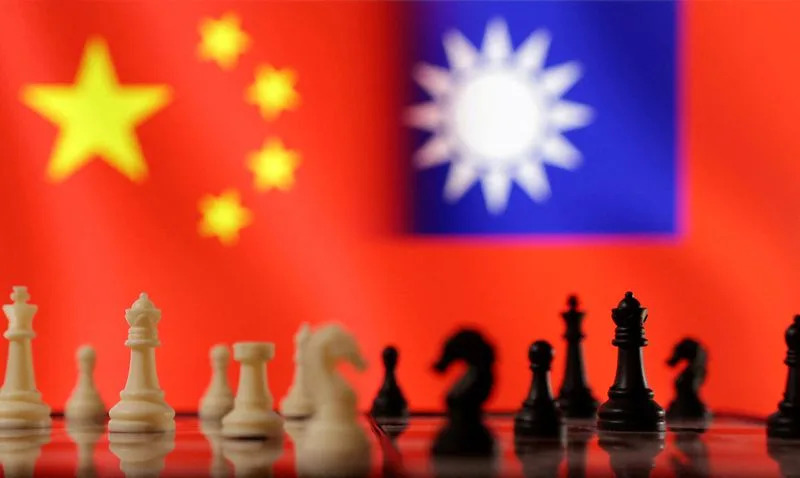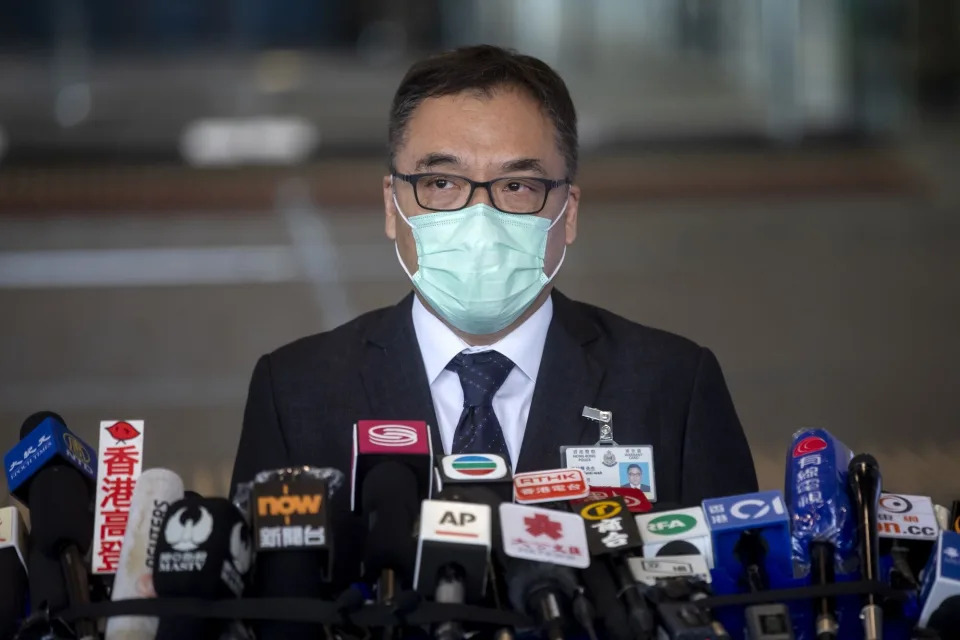China on Friday pressured Taiwan with a trade barrier probe and warplanes in the Taiwan Strait a month before the island holds key elections, as Taipei called on Beijing to stop its "political operations".
The Jan. 13 presidential and parliamentary elections are taking place as China, which views the island as its own territory, has sought to force Taiwan to accept Chinese sovereignty claims.
Taiwan's government and the ruling Democratic Progressive Party (DPP) have repeatedly said China is trying to interfere in the vote, whether by military means or co-opting Taiwanese politicians, to ensure an outcome favourable to Beijing.
China's Commerce Ministry said it had determined Taiwan had put up trade barriers in contravention of both World Trade Organization (WTO) rules and a trade deal signed in 2010 with Taiwan. These barriers have had a "negative impact" on Chinese companies, it added.
The ministry stopped short of announcing any countermeasures. It was also unclear whether the investigation is over.
China's Taiwan Affairs Office, in a separate statement, said that evidence from the probe is clear and that its conclusions objective and fair.
"We support the relevant authorities to study and take corresponding measures in accordance with regulations based on the final findings of the investigation on trade barriers to Taiwan," it said.
Separately, Taiwan's defence ministry said that on Friday morning it had detected 10 Chinese military aircraft operating around the island, including J-16 fighters and H-6 bombers, carrying out "joint combat readiness patrols" with Chinese warships, part of what Taiwan calls routine harassment.
China in October said it was extending its trade barrier investigation to Jan. 12, the eve of Taiwan's elections. Taiwan denounced that at the time as election interference.
Taiwan's Office of Trade Negotiations, responding to the Chinese announcement of the investigation's conclusions, called them one sided, inconsistent with the facts and in violation of WTO mechanisms and norms.
"We will never accept it and call on China to stop their political operations immediately," it said in a statement.
Both are WTO members and can resolve issues there, it added.
"If China is sincere, our attitude is that we can talk at any time," said the office's spokesperson, James Hsiao.
The DPP's Lai Ching-te is the frontrunner to be Taiwan's next president, according to polls. China detests him believing him to be a separatist and has rebuffed repeated offers of talks.
China's Taiwan Affairs Office on Wednesday said Taiwan's elections were "purely an internal Chinese matter" and that the DPP was trying to call any kind of interactions between the two sides of the strait election interference.
Taiwan's government rejects China's sovereignty claims, saying only the island's people can decide their future.
Hong Kong Expands Bounties in Hunt for Democracy Activists
Hong Kong police offered HK$1 million ($128,000) in rewards for information on five dissidents living overseas, stepping up its controversial use of bounties to chase pro-democracy activists in the name of national security.
“All of them, who have already fled overseas, have continued to commit offenses under the national security law that seriously endanger national security,” Li Kwai-wah, chief superintendent of the police’s national security department, said in a briefing Thursday.
The alleged offenses include inciting secession and subversion, and colluding with foreign forces to endanger national security, Li said. The five, including well-known activists Simon Cheng, Frances Hui and Joey Siu, betrayed their country through acts such as calling for sanctions against Hong Kong officials, Li said.
The bounties will likely add to concerns that a crackdown on rights under the China-imposed security legislation is diminishing Hong Kong’s rule of law, which for decades has been a foundational pillar of its standing as an international financial center. The UK earlier withdrew its top judges from the city’s Court of Final Appeal over such concerns.
Hong Kong is facing several challenges to maintaining its place as an international hub, partly due to China tightening its political grip. China’s financial policymakers are in the city this week meeting bankers to seek ways to bolster its status as a center for investments, deals and talent.
See: China Convenes Hong Kong Bankers in Bid to Revive Financial Hub
Asked about the latest bounties, Matthew Miller, a US State Department spokesman, told reporters in Washington that “we strongly condemn the egregious actions taken by Hong Kong authorities in announcing national security law changes and a new bounty list targeting democracy advocates overseas. That shows blatant disregard for international norms, for democracy and human rights.”
Hong Kong’s Security Bureau said in a statement on Thursday that the security law “has extraterritorial effect,” so “the police have the responsibility to pursue those who have allegedly committed offenses” outside of the city.
In July, authorities placed similar HK$1 million bounties on eight democracy activists living abroad. The move immediately drew criticism from officials in the US, UK and Australia as an attack on freedom of speech and democracy.
Hong Kong Chief Executive John Lee said back then that the activists “will be pursued for life,” and encouraged friends and relatives of the eight to provide information to the police.
The people Hong Kong has placed bounties on are unlikely to ever return to the city, making their prospect of arrest in the territory close to zero. Hong Kong authorities could try to persuade other jurisdictions to hand over the individuals.
The UK has previously alerted people in Britain named in a Hong Kong national security case to avoid traveling to countries that have extradition treaties with the Chinese territory.
Thailand has previously bowed to pressure from the Communist Party to deport Uyghurs to China, while Beijing has been accused of pressuring Turkey to do the same. Chinese authorities have also apparently kidnapped individuals living overseas. Hong Kong bookseller Gui Minhai was snatched from his home in Thailand in 2015, before resurfacing in China.
Earlier this month, activist Agnes Chow said she doesn’t intend to return to Hong Kong, provoking a strong reaction from officials. Lee said Chow, who was free on bail amid accusations she violated the national security law, was “a liar” and “a hypocrite,” and repeated such activists would be “pursued for life unless they turn themselves in.”
Chow, 27, also gave details on the things she had to do for the Hong Kong’s secretive national security police to get her passport back. This included an escorted trip into mainland China where she was documented showing her appreciation for the country’s achievements under the Communist Party, writing statements thanking the police and disavowing her past actions.
China last month blasted lawmakers in the US over a bill that could shut the city’s three economic and trade offices in America if Hong Kong isn’t deemed significantly autonomous from Beijing.
The bill, known as the Hong Kong Economic and Trade Office Certification Act, could lead to the end of immunities and exemptions for the city’s US-based trade offices, or have their operations shut down altogether.




